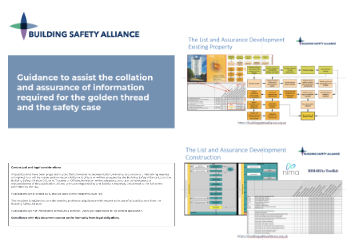Creative industries
The UK Department for Culture, Media, and Sport (DCMS) has defined the creative industries as “those industries which have their origin in individual creativity, skill and talent and which have a potential for wealth and job creation through the generation and exploitation of intellectual property.” It has grouped the creative industries into the following sub-sectors:
- advertising and marketing.
- architecture.
- crafts.
- design and designer fashion.
- film, TV, radio and photography.
- museums, galleries and libraries.
- music, performing and visual arts.
- publishing.
- IT, software and computer services (includes video games).
in 2023, in terms of gross value added the creative industries contributed around £124 billion to the economy, around 5% of total UK economic output, with IT, software and computing services contributing 40% of creative industries output.
In January 2025 the government announced a £60 million boost for the creative industries “to turbocharge growth”. In May 2025 the Skills England Sector skills needs assessment was published following analysis and engagement with sectors on growth and skills offers for 10 priority sectors, which included the creative industries. They note that employing 2.4 million people in 2023, creative industries are major economic and cultural force, growing faster than the national economy.
The report also notes however that the UK creative industries face critical skills shortages, with 33% of vacancies caused by skills gaps, in soft, technical, and advanced IT skills, especially in professional roles. A sector where informal hiring and project-based work may be obscuring its true demand. The sector is prone to evolving as technology develops making "fusion" skills which blend creativity and tech increasingly important.
Barriers to entry to the sector include underused apprenticeships, and reliance on higher education which limit workforce diversity. Other challenges include poor job security, gender imbalance, and low training investment. Stakeholders have been calling for better upskilling in digital and green tech, lifelong learning, flexible training models, and stronger education-industry links to support sustainable talent development.
[edit] Related articles on Designing Buildings
- Architecture.
- AI in architecture: Combining human creativity and tech innovation now and in the future.
- Building information modelling BIM.
- Construction innovation.
- Creative.
- Design.
- Design methodology for building projects.
- Skills England publishes Sector skills needs assessments.
- The impact of digital on civil engineering.
- What is design?
Featured articles and news
International Electrician Day, 10 June 2025
Celebrating the role of electrical engineers from André-Marie Amperè, today and for the future.
New guide for clients launched at Houses of Parliament
'There has never been a more important time for clients to step up and ...ask the right questions'
The impact of recycled slate tiles
Innovation across the decades.
EPC changes for existing buildings
Changes and their context as the new RdSAP methodology comes into use from 15 June.
Skills England publishes Sector skills needs assessments
Priority areas relating to the built environment highlighted and described in brief.
BSRIA HVAC Market Watch - May 2025 Edition
Heat Pump Market Outlook: Policy, Performance & Refrigerant Trends for 2025–2028.
Committing to EDI in construction with CIOB
Built Environment professional bodies deepen commitment to EDI with two new signatories: CIAT and CICES.
Government Grenfell progress report at a glance
Line by line recomendation overview, with links to more details.
An engaging and lively review of his professional life.
Sustainable heating for listed buildings
A problem that needs to be approached intelligently.
50th Golden anniversary ECA Edmundson apprentice award
Deadline for entries has been extended to Friday 27 June, so don't miss out!
CIAT at the London Festival of Architecture
Designing for Everyone: Breaking Barriers in Inclusive Architecture.
Mixed reactions to apprenticeship and skills reform 2025
A 'welcome shift' for some and a 'backwards step' for others.
Licensing construction in the UK
As the latest report and proposal to licence builders reaches Parliament.
Building Safety Alliance golden thread guidance
Extensive excel checklist of information with guidance document freely accessible.
Fair Payment Code and other payment initiatives
For fair and late payments, need to work together to add value.
Pre-planning delivery programmes and delay penalties
Proposed for housebuilders in government reform: Speeding Up Build Out.
High street health: converting a building for healthcare uses
The benefits of health centres acting as new anchor sites in the high street.
























